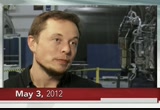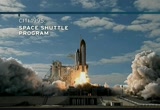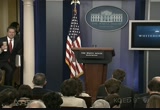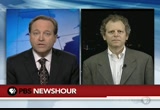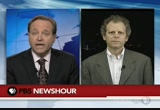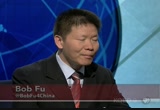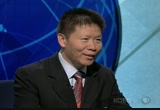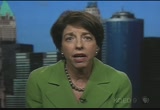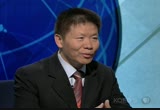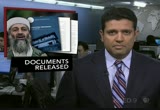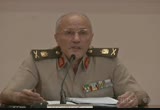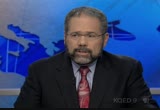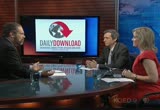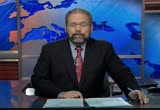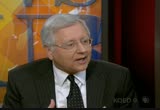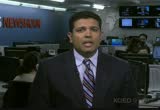tv PBS News Hour PBS May 3, 2012 3:00pm-4:00pm PDT
3:00 pm
captioning sponsored by macneil/lehrer productions >> brown: the blind chinese activist now in a beijing hospital has changed his mind and wants to come to america, and he spoke by phone to congressmen in washington, saying he fears his family and friends are in danger. good evening. i'm jeffrey brown. >> suarez: and i'm ray suarez. on the newshour tonight, we have the latest on the still unfolding story that's left u.s. officials struggling to resolve a tense diplomatic situation. >> brown: then, on the "daily download," we examine how the campaigns are using twitter hashtags to get out their messages. >> suarez: miles o'brien profiles a small private company trying to position itself for a big role in exploring frontiers in space. >> i'm talking about setting
3:01 pm
ultimately tens of thousands, virtually millions of people to mars and then going out there and exploring the stars. >> brown: judy woodruff talks with veteran congress-watchers thomas mann and norman ornstein, about extreme partisanship, the subject of their new book, "it's even worse than it looks." >> we've never seen it this dysfunctional so unfortunately the title may be alarmist, but it's true. >> suarez: and we close with a look at the record-breaking $120 million price tag for one of the world's most recognizable images, "the scream" by edvard munch. >> brown: that's all ahead on tonight's newshour. major funding for the pbs newshour has been provided by: >> citi turns 200 this year. in that time, there have been some good days and some difficult ones. but through it all, we persevered, supporting some of the biggest ideas in modern history. so why should our anniversary matter to you? because for 200 years, we've
3:02 pm
been helping ideas move from ambition to achievement. and the next great idea could be yours. at&t >> and by the bill and melinda gates foundation. dedicated to the idea that all people deserve the chance to live a healthy productive life. >> and with the ongoing support of these institutions and foundations. and... >> this program was made possible by the corporation for public broadcasting. and by contributions to your pbs station from viewers like you. thank you. >> suarez: the uproar in both the u.s. and china over the treatment of a chinese activist
3:03 pm
grew today. and conflicting stories about the status and wishes of the now world-famous dissident are complicating the situation. there was chaos outside the hospital room in beijing where chen guangcheng first indicated he now wants to leave china. the blind dissident lawyer said he made this reversal in a phone interview with britain's "sky news" after learning of threats made to his family by the chinese during his six days holed up at the american embassy in beijing. >> ( translated ): the government officials came into my home, wanted to beat my family to death. they've put video surveillance cameras on the roof and inside my house, and around my house, an electric fence. then, when i was in the u.s. embassy, i didn't have information. now, i think the information, i've changed my mind. >> suarez: his latest explanations in a series of interviews with foreign media today overwhelmed a major long- scheduled meeting with secretary
3:04 pm
of state clinton and treasury secretary geithner and their chinese counterparts in beijing. chen said today he hopes to leave in the company of secretary clinton. chen left the american embassy yesterday after u.s. officials said the chinese government promised not to retaliate, saying he would be allowed to be relocate in a university town. u.s. ambassador gary locke accompanied chen from the embassy to the hospital. >> he's never asked for asylum, he never asked for asylum at any point while he was at the embassy. and even in his video that he released, he said he wanted to be a freedom fighter in china. >> suarez: but chen said he began questioning the chinese government assurances after his wife told him she had been beaten and interrogated by chinese authorities. china's foreign ministry spokesman, liu weimin, disputed those charges. >> ( translated ): i don't know what you are referring to, but as china is a country of law, the legitimate rights and
3:05 pm
interests of any citizen are protected by its constitution and laws. we also believe that every chinese citizen has the obligation to abide by china's constitution and laws. >> brown: and while chen hasn't formally requested asylum, ambassador locke acknowledged the state department is reassessing the situation. >> it's apparent that he's had some change of heart. we've got to deal with that, and so we want to sit down with him and his family together, his wife together, let's find out exactly what they're thinking and let's explore the options. >> brown: secretary clinton did not mention chen by name at the meeting with chinese president hu jintao, but reiterated the u.s. position on human rights. >> now, of course, as part of our dialogue, the united states raises the importance of human rights and fundamental freedoms, because we believe that all governments do have to answer to citizens' aspirations for dignity and the rule of law, and that no nation can or should deny those rights.
3:06 pm
>> suarez: the chen story also landed on u.s. shores today. the daily briefing of white house press secretary jay carney was dominated by questions about chen. and republican presidential candidate mitt romney criticized the administration's handling of the case, saying it would be a "day of shame" for the u.s. if the administration was trying to curry favor with the chinese government. late this afternoon, at a congressional hearing, the chairman connected on his cell phone to chen. >> so i do think all the villagers are also seeing retribution. i want to thank all of you for your care and your love. >> suarez: for the time being, american officials have been barred from seeing chen at the hospital. for more on all of this, i spoke earlier today with associated press beijing bureau chief charles hutzler. charles hutzler, thanks for
3:07 pm
joining us. is the situation any clearer tonight, at least as far as mr. chen's desire to leave china? including expressing a desire to leave on hillary clinton's plane. >> well, pretty much over the last 24 hours he has been in touch with friends and foreign media intermittently turning a cell phone on that was given to him and he's said repeatedly he wants to leave. he feels very cut off in the hospital and he feels his family's life is in danger. now, it seems to have taken the state department quite some time to get that message but this evening they said they, indeed, had confirmed his desire to leave and they were seeking additional information from him as to how to go forward. >> what is his status? he's not simply a patient in a hospital, presumably. is he a prisoner? is that clear at all? >> it's not terribly clear.
3:08 pm
he's not confined to the hospital. he seems to be unable to leave. the state department said that officials had spoken with him by phone twice today. his wife and two children who joined him upon his release in the hospital yesterday, his wife has been able to come out and meet with u.s. officials to talk about the family's situation. >> brown: just to be clear, have u.s. officials said one way or another if they support his idea of leaving the country? >> they have not said that clearly. they said they understand it's his intention to leave with his family and they're seeking more information about where to go from here. they've also said that they have had some contact with chinese officials over the situation but no elaboration on the content of those talks. >> brown: that's what i want to ask you next because you've got these formal meetings on the one hand and you have all of this happening behind the scenes.
3:09 pm
so it's not clear how much negotiating is going on at this point between the u.s. and chinese officials? >> his change of mind really seemed to throw a spaner in the works. before an agreement was reached on his leaving the embassy we were being told by activists who were in touch with some of the negotiators that a deal had to be made before these high-level strategic and economic talks began or there just wasn't going to be enough time to deal with it until afterwards. of course, their plan to kind of quietly reach a solution has now come undone and it really is not clear how much energy is being expended-- perhaps a lot, we just don't know-- on trying to resolve the situation. >> brown: charles hutzler of the yaip. thanks for joining us. >> thank you. we get two perspectives now on the story that's creating a clamor in beijing and washington.
3:10 pm
bob fu, whom we saw at that congressional hearing, is president of the china aid association, a christian human rights organization. he has worked with chen to promote religious freedom and the rule of law in china. susan shirk was deputy assistant secretary of state dealing with china issues during the clinton administration. she is now a professor at the university of california, san diego. bob fu, you've known mr. chen a long time, you talked to him today. how did he sound today? did he sound as committed as it sounds that he wants to leave? >> he's very clear to me last night when i had phone call and today at the congressional hearing he and his family do not feel safe? china, they want to leave as soon as possible. >> brown: and there was the suggestion in that clip that you are suggesting there are dangers to his family, to neighbors, to other people. >> that's right. he's concerned his family members are being arrested or threatened. so that's his concern.
3:11 pm
>> brown: is it your sense that he had a change of heart? there's still confusion about what he told u.s. officials and what he later said when he left the embassy. >> apparently he said he was not getting the full picture for the threat, the length of threat his family member had received before he walked out of the u.s. embassy. so he was... he felt some sort of threat before he walked out of the embassy already when the message came to him, basically said if you don't walk out today then your family will be in danger. your wife and your children will not be able to see you anymore. so he walked out of that, of course, with some of the assurance by the u.s. embassy and the u.s. officials that his freedom will be protected and at
3:12 pm
the end of the day, even the first day, the deal was broken. as we seed today. >> brown: susan shirk, of course, this has led to second guessing about how this was handled by the u.s. delegation and it sounds as though they were taken by surprise. what's your take on that now? >> well, if you look at the interviews that ambassador locke has given and other senior officials who were trying to achieve the result that chen guangcheng had requested, which is to live as a free citizen go to law school, have his family with him, they really the... they offered time alternative for staying in the embassy for a period of time and, in fact, on monday evening that's where
3:13 pm
things were. he talked with professor jerome cohen, professor at n.y.u. law school who is giving him independent advice as a highly respected china expert in and human rights lawyer and as of monday night it looked like he was going to stay in the embassy and the embassy was making preparation to house him for some period of time. on tuesday his thinking changed and he asked that his family be brought to beijing by the chinese government as a sign of good will and credible commitment and the chinese government did that and once he spoke with his wife several times, once she had gotten to the hospital he decided to leave. but, of course once he reentered chinese society i think his feelings of vulnerability very much came to the surface and he
3:14 pm
became uncertain about the risks he now faces. >> brown: bob fu, you have raised questions about how the u.s. handled this, there's some concerns. what should happen now. >> i think secretary clinton should make an appointment about the chinese and allow him to meet with mr. chen and his wife to listen to what do we really want to do? and i think to reassess the agreement and he already made it clear to the whole world and even today to secretary clinton that he wants help, he feels in danger, he wants his family to come to the u.s. >> but do you see the u.s. is having the leverage to do that giving the chinese, no doubt, feel very aggrieved at this point. >> yeah, i think... technically, you know, mr. chen and his
3:15 pm
family, they are not criminals and they are supposed to be free citizens and normal chinese citizens are guaranteed constitutional rights. they should be allowed to at least get a passport and to apply for a visa. i think just treat him as he is. i think that's not a big deal. >> pelley: do you see this as the u.s. having leverage here? what should happen? >> well, in the last couple of hours mr. chen has indicated that hi would like to remain in china as a free citizen but he would like to leave for a period of time say as a visiting scholar or international student this might be a very good solution which would be easier for the chinese government to
3:16 pm
accept than a case of political asylum. >> brown: we'll leave it there for now. susan shirk and >> brown: and one further note-- we've posted online all of chen's cell phone conversation with members of congress this afternoon. you can find the video on our home page. >> suarez: still to come on the newshour: twitter hashtags in the campaigns; space exploration as a private enterprise; the politics of extremism; and the record price tag for "the scream." but first, the other news of the day. here's hari sreenivasan. >> sreenivasan: 175 pages worth of documents seized in last year's raid on osama bin laden's pakistani compound were released today. they reveal bin laden was determined to carry out attacks on high profile american targets, such as president obama and general david petraeus, when he commanded troops in afghanistan. the documents also showed the al qaeda leader was frustrated by dysfunction within his terror network. they were posted online by the combating terrorism center at west point. i spoke with brian fishman, a research fellow with the center, earlier today.
3:17 pm
what these documents do show is that al qaeda and osama bin laden was better networked to the al qaeda affiliates, i think than was commonly understood. he was able to communicate with a wide range of affiliates. the issue is that they didn't always listen to him. one of the key messages that he and his top lieutenants were trying to get out to the affiliates around the world was the idea that that they shouldn't kill muslims and that they should worry more about their sort of political position within the middle east and within the muslim world. that hasn't worked. hari sreenivasan >> sreenivasan: you can view my entire interview and read the newly released bin laden documents online on our web site. in syria, security forces killed four students and wounded dozens more in an hours-long campus raid that ended this morning. the crackdown took place in aleppo after 1,500 students protested against the regime on wednesday. amateur video purportedly shows government troops storming aleppo university late last night. activists said the troops fired live ammunition and tear gas,
3:18 pm
and arrested some 200 students. in washington, white house spokesman jay carney denounced the violence, and stressed that the cease-fire is not working. >> these kinds of acts which are now routine laid bare this regime's illegitimacy and they underscore the urgent need for a political transition. if the regime's intransigence continues the international community is going to have to admit defeat and work to address the serious threat to peace and stability being perpetrated by the assad regime. >> sreenivasan: syrian forces have stormed the aleppo campus before, but last night's raid was the most violent. egypt's ruling generals vowed again today to transfer power to a civilian administration in the next two months. that assurance came a day after at least 11 people were killed in clashes between apparent military council supporters and a mostly islamist crowd. a senior member of the military council reiterated its promise today at a news conference in cairo. >> ( translated ): we say it frankly and clearly.
3:19 pm
the armed forces and their supreme council are committed to the handover of power on june 30. we do not desire power. >> sreenivasan: egypt's presidential elections will be held later this month, but a winner isn't expected to be announced until late june. in economic news, the number of people seeking unemployment benefits in the u.s. fell sharply last week. average mortgage rates have also fallen to record lows. meanwhile, retailers reported their worst performance since 2009. the conflicting news pushed stocks lower on wall street. the dow jones industrial average lost nearly 62 points to close at 13,206. the nasdaq fell 35 points to close at 3,024. seven of the 11 people charged in the death of a florida a&m university band member have now turned themselves in to authorities. robert champion was found unconscious last november aboard a charter bus in orlando. the medical examiner said he'd been beaten and gone into shock. the 11 defendants face third degree felony hazing charges. four of them remain at large. more than 100 former pro football players are suing the
3:20 pm
nfl over inadequate protection from concussion-related brain injuries. a federal lawsuit in georgia claims the league did not do enough to educate players about the dangers of concussions, and is failing to take proper care of them. they're among more than 1,000 former nfl players who have brought legal action on the same grounds. the nfl has said any allegations of "intentional misleading" are without merit. those are some of the day's major stories. now, back to ray. >> suarez: we turn to our regular look at the campaigns. it plays out in social media and the web. if that are we're joined by two journalists from the web site "daily download." lauren ashburn is the site's editor-in-chief and formerly with "u.s.a. today" live and gannet broadcasting. howard kurtz is "newsweek's" washington bureau chief and host of cnn's "reliable sources. lauren, this week word comes from the obama campaign that while they are making heavy ad buys-- even though the president had no primaries-- they're buying more on the web than
3:21 pm
television. is this newer the snir >> it is. look at the numbers. just for march the obama campaign spent $6.7 million online. their last t.v. ad buy was $1.4 million and their last print ad buy was $700,000. >> suarez: is this a creature of it being early the season or is this pointing us toward a new way of talking... >> well, it's early, by the time we get to november both campaigns will have spent hundreds of millions of dollars on traditional cable broadcasting. but what's more efficient is you can target people. you don't have to buy the whole state of missouri or florida, you can target certain types of people who read certain magazines with certain political views and that's very efficient. >> and they're using it for text messaging. targeting google ad searches. for the ads you see in front of videos for facebook ads. so it's not as if they're putting one add in one place they're putting it everywhere.
3:22 pm
>> now twitter is getting a lot of action for this campaign season. it was around in 2008 but didn't have the number of users it wasn't the fully fleshed out services it is today. what are the campaigns doing differently this time. >> well, twitter in this campaign has become a forum for political sniping but now also a forum for arguing about policy disputes and making them a way of political sniping. so if the campaigns do, they use hashtag which is is a pound sign or catchy word or phrase they hope will catch on and that you can search online and see their attacks or defenses on policy disputes as in the obama campaign did this recently. >> here's an example. barack obama's campaign put together a hashtag as you can see right here "don't double my rate." he went to do a speech and in the speech two students at u.n.c., he said "i'm putting out a hashtag on twiter that says "don't double my rate" spread the word.
3:23 pm
so it was his way of getting engagement among a younger audience. >> it's a reference to the student loan rate which will double if congress doesn't act along with the administration pushing for legislation to keep the lower rate which is popular among younger people so this spread as a twitter hashing to or slogan. the romney campaign doing this as well, for example, after obama appeared on jimmy fallon's late night show and the white house correspondents dinner the romney folks put out the hashtag "not funny." as in while barack obama cracks joke it is youth unemployment rate is double the national rate not funny. >> suarez: this is kind of a free-for-all. you can't lock one down and make it your own so can they be used in the other side in the way the campaign's original use never intended. >> yes. got another one from the r.n.c. the r.n.c. sent out a peres press release and the obama
3:24 pm
administration used the hashtag "forward." the republican national convention said we are going forward to $1.9 trillion in higher taxes. we are going forward to $491 billion in higher taxes for obamacare and we are going forward to deficits over one trillion dollars. >> so you can't patent this, you can't control it, somebody can take it, flip it, kind of a political jujitsu and use it against the message you intended. >>. >> suarez: so in you look for hashtag forward you'll get a bunch of republican and democratic messages under that rubric, sgligt that's correct. >> now are any of these working? in the drive to make them sticky are there any hashtag slogans that have caught on and are doing well? >> take a look at another one we have for you. senator barbara boxer created this hashtag called "war on
3:25 pm
women" and this is one that did take off. war on women, she said, is it an imaginary war on women when the house g.o.p. holds a panel on women's health and no women are invited to testify? or another one she sent out into the twittersphere. is it an imaginary wash on women when g.o.p. nearly shuts down the federal government over efforts to defund family planning. and this took on a life of it own. >> and republicans dismissed this as an overheated democratic talking point but twitter has become a way to spread this, especially they have a catchy phrase, "not funny," "war on women" to get people repeating it and talking about it and inject it into the media bloodstream. >> suarez: and in this particular case you bring up the barbara boxer page and who's the first poster there? >> michelle malkin. >> suarez: michelle malkin who makes fun of that notion that there is a war on women coming from the republican side. any way to count traffic on twitter? do we know whether this is
3:26 pm
becoming a venue for campaign arguments in a much more fleshed out way than it as in the past? >> there were 24 million active users on twitter and you can instantly see, usually within a news cycle or the blink of an eye weren't one of these takes off because they become a trending topic. these the hashtags or subject lines that most people are using or arguing about and that's a way to... it start on twitter and the whole idea if you are a political operative is that it spreads out and gets picked up on talk radio and cable television arguments. >> that people like us talk about it. >> people like us talk about it as a way of trying to shape the debate in your favor and dick it to your opponent. >> suarez: howard kurtz, lauren ashburn, thank you both. >> brown: with the shuttle era over, american space flight is on the verge of going private for the immediate future.
3:27 pm
this week, the company behind the so-called spacex project announced another delay in its planned launch of a commercial cargo capsule. liftoff had been scheduled for monday, and the project is three months behind the original schedule. but its creator and engineers remain undaunted about their plans and ambition. newshour science correspondent miles o'brien has our report. >> reporter: at the spacex factory in hawthorne, california, they are going boldly where no small company has ever gone before, building spacecraft that are meant to open up the final frontier in ways that are hard to fathom, unless you are elon musk. >> i'm talking about sending ultimately tens of thousands, eventually millions of people to mars, and then going out there and exploring the stars. >> reporter: musk is the c.e.o. and chief technology officer of ten-year-old space exploration technologies, as it is more formally known. he has staked $100 million of the fortune he made founding paypal to pursue a lofty goal--
3:28 pm
to make access to space an order of magnitude cheaper than it is right now. is there any doubt in your mind that this is the way nasa and the country should go as it looks towards the future in space? >> no, not all. this is... it's not... this is not a path, it's the only path that will succeed. if this doesn't succeed, nothing will. >> reporter: the path to musk's bold vision is now taking him to the international space station. this falcon 9 rocket at cape canaveral is slated to launch a dragon capsule to the station, where spacex hopes it can safely orbit in close formation-- and then, if all goes well, berth- delivering a load of food, water and clothing, and then about two weeks later, return to earth. it sounds pretty routine, but this is a mission like no other in the history of space exploration. spacex is building rockets for nasa like boeing would build an airplane for an airline. the space agency is not directly involved in the process. it is an arms-length fixed price
3:29 pm
contract. why make this change? >> there isn't that much new or unknown about launching to low earth orbit anymore. we've been doing it for 50 years, and nasa wants to do those cutting edge things that are all about pushing the envelope further. so its only natural that those things we've done for 50 years should be taken over by the private sector. >> reporter: lori garver is nasa's deputy administrator, and its most vocal advocate for changing the way the agency does business in low earth orbit now that the space shuttles are prized museum pieces. a lot of people view it as a retreat. what do you say to them? >> the opposite is true. this is not a retreat. in fact, this is acknowledging... this is something that we've been doing forever, and we need to push that boundary farther. a retreat would be doing the same thing over and over. >> reporter: spacex is one of a handful of companies with contracts to fly missions to the space station under nasa's $1 billion commercial crew and cargo program. all right. so, what do we have here? >> so, what were looking at here, miles, is mission control.
3:30 pm
this is where we operate dragon from. >> reporter: gwynne shotwell, the president at spacex, walked me through the factory. here, they are aiming for the holy grail, a fully and rapidly reusable rocket. it would revolutionize access to space. >> these engines actually are reusable. >> reporter: they are? how many flights can you get? >> i know we've tested to 20. >> reporter: those engines are built here from scratch, and that is typical. more than two thirds of falcon and dragon parts are milled, made and mated right here. >> we're trying to push the state of the old technology. so, if we use supplies that are just produced in the old technology, then we're not going to have a revolutionary rocket. >> reporter: the falcon/dragon combination is obviously much simpler than a space shuttle-- no wings, wheels, or cargo compartments. the cost of launching anything into space on a shuttle was about $10,000 a pound. musk believes he can drive that
3:31 pm
number down below a $1,000. veteran space journalist steven young believes musk can do it. >> i think going back to something a little more basic sort of capsule that spacex is going to fly, we'll reduce cost dramatically and open up a lot more opportunities for research in orbit. >> reporter: but hauling underwear and food to the space station is one thing; flying astronauts is another, and spacex wants to start doing that by 2015. turns out, they have been thinking about flying humans from the outset. >> that's why the falcon 9 was designed with much higher factors of safety more than the standard expendable launch vehicle. >> reporter: unlike the shuttle, the man-rated dragon will be equipped with a crew escape system. and the capsule sits at the top of the stack, upstream of any falling debris, the cause of the loss of "columbia" and her crew in 2003.
3:32 pm
the accident triggered then president george bush to announce the shuttles would be retired after the space station was complete. mr. bush proposed a new program called constellation that would aim for a return to the moon. but the bush white house never delivered the promised funding, so president obama cancelled stillborn constellation, and now all that remains of the program is this, a capsule called orion, being built and tested by aerospace giant lockheed martin. john karas is vice-president and general manager of human space flight here. lockheed martin and nasa are building orion the old-fashioned way, meaning the government pays for all the costs, and all the changes, plus a guaranteed fee to the contractor.
3:33 pm
the testing is exhaustive to what engineers call the corners of the flight envelope, meaning the absolute edge of a vehicles capability. >> you can rest assured that on a nasa-driven human space flight exploration program, we will test on all the corners. >> reporter: so it's... this is what cost-plus is all about, isn't it? doing ... when you have to do all this, right? >> exactly right. >> reporter: everyone agrees sending humans to space will never get cheaper if this remains the approach. but the old guard is leery of retooling. having a commercial player just build a rocket and you use it or not, like it or not, you don't see that as inherently more risky? >> so, i think it is inherently more risky. now, the question is, what risk tolerance are you willing to take? i don't think that question has been answered yet, and i think it's going to take a while, and it's going to be some trial and
3:34 pm
error, just like in the airline industry-- what's your level of tolerance to go build the airplanes, and what do you think the revenues are? >> reporter: orion is designed to take up seven astronauts to low earth orbit and beyond, but where? the destination has changed repeatedly. it was going to be a lifeboat for the space station. it could take crew to the station. it was going to go to the moon at one point, then it was going to go to mars, and now, it might go to an asteroid. is this really the way to build a space program? >> well, no. ( laughter ) is that a way to run a railroad? no, okay. >> reporter: and the political and budgetary winds keep shifting. when the obama administration cancelled the family of rockets that would have lofted orion into space under the constellation scheme, congress got in the act. senator bill nelson, a florida
3:35 pm
democrat who flew on "columbia" in 1986, with the current nasa administrator, charlie bolden, insisted the agency build a heavy-lift rocket that uses shuttle-derived components. again, with no clear destination in mind. is it a rocket to nowhere? >> it's a rocket to mars. that's the goal. the president has said that's the goal and that's where were going. >> reporter: well, maybe one day. the president did say that when he announced the cancellation of constellation, but nasa does not have the money for a mars program. still, nelson says the space agency is doing relatively well. >> first of all, look at nasa compared to other agencies of the federal government. nasa is being treated very well. nasa is basically being flat- lined. >> reporter: so the agency is left with orion and an under- funded idea for a big rocket that could take humans to mars, but no concrete plans to do so. when-- or if-- it will ever fly
3:36 pm
is anyone's guess. what is nasa's goal right now? do we know? >> that's a very good question. i think that's the fundamental problem. i think, for the first time in the space agency's history, its mission is very uncertain. there is no clear direction. >> reporter: which brings us back to spacex, and the launch pad right next to the place where the shuttles left earth for the three decades. it is a lean, clean operation, filled with a lot of people like launch engineer mike sheehan, the boss at the tender age of 28. >> is this all useable? >> yes. >> this will be fished out of the lat tan tick? >> this one won't, no. >> but in the future it will. is that the plan or... >> yes, yes. >> reporter: its not unlike nasa in the 1960s. could this be a changing of the old guard? are we at an inflection point where that's changing? >> yeah, i think were really at
3:37 pm
an inflection point where space is increasingly driven by the private sector. the government still has a very important role to play, but it's going to be a greater and greater percentage of private enterprise. >> reporter: spacex has flown falcon 9 to orbit twice before with great success, but this will be the maiden voyage for a fully equipped dragon capsule and the first attempt to reach the space station. so, the spacex team is dotting is and crossing ts, but in this case, the goal is not to ensure success at all costs. >> brown: it's science thursday on our web site. there, take a test to see if you know more than a tenth grader about climate change. that's on our science page. >> suarez: next, washington's extreme partisanship.
3:38 pm
is it deeply rooted in our political culture, or is it a new phenomenon? and what can be done to restore a sense of common purpose? judy woodruff talks with two authors who offer answers. >> woodruff: veteran congress watchers thomas mann and norman ornstein say the legislative branch has turned to political hostage taking instead of negotiation and the practice is driving the country to dysfunction. from last year's debt ceiling showdown to the art of the filibuster. the pair looked to history to analyze today's most-used political tactics and to recommend ways to reform. those insights come in a new book called "it's even worse than it looks: how the american constitutional system collided with the new politics of extremism." thomas mann is a senior fellow at the brookings institution. norman ornstein is a scholar at the american enterprise institute and they both join me now and it's good to have both of you with us. >> thank you. >> thank you, judy. >> woodruff: so it's even worse than it looks?
3:39 pm
that's the most foreboding title you could have chosen. norm ornstein, is it real they bad? >> tom and i have been here and both ends of pennsylvania avenue for more than 42 years and we've never seen it this dysfunctional. so unfortunately the title may be alarmist but it's true. >> tom, you put in the book much of the blame for what's going on on the republican party. why? >> we do believe there are two profound drivers of our dysfunctional politics. the first is the mismatch between our political parties that are parliamentary like. ideologically polarized, internally unified and set on destroying the other. but the second factors which is, frankly, overlooked in the press among pundits, by scholars and almost everyone else is that one of our political parties-- namely the republican party--
3:40 pm
has become an insurgent outliar. they are ideologically extreme, contemptuous of centuries worth of policy, economics and social, scornful of compromise. no use much for facts, evidence, and science and really not accepting of the political legitimacy of the other party. that makes a big difference. >> woodruff: norm ornstein, if a republican were sitting here today who believes in what they're doing they would say it's really about policy, we disagree with the president and the democrats on the side of the deficit, on spending. we don't think the tax cuts should end. >> there have been serious differences between the parties and their world views and outlooks for a long time but just to take a couple of quick examples, judy, the affordable care act, the health care bill that passed without a single republican vote, was basically the republican alternative that
3:41 pm
had been written to oppose the clinton health care plan in 1993 by several people, including chuck grassley and orrin hatch, current senators who now denounce those same ideas as socialistic. republicans. it's a different culture than we saw 20 years ago or 30 years ago. it's why people like chuck hagel, a very conservative republican former senator has decryed what's going nonhis own party. >> woodruff: you're not saying democrats are blameless, though are you? you also write about the role of the media and money in all this. >> absolutely. there are many factors involved. the democratic party is not a perfect party. it just so happens that their periods of being out liars go back to the '60s and '70s and now it's been the republican party that's moved in this direction. >> and to pick up the role on the new media, how has that
3:42 pm
changed? what's going on? >> well, it really is... in a way it's back to the future. we had partisan media in the 19th century. we have it now with fox, with msnbc and a lot of others. with talk radio. but this is different. we don't share a common set of facts and we live in worlds that camp phi those differences and, in fact, help to create the hype that we're in a tribal world and you have to oppose the other side because they're evil. >> woodruff: you do write about solutions and how do you fix it. tom mann, one of the things you talk about is expanding the vote. >> there are three ways to fix it. one is to change the parties so they aren't so parliamentary like, that it's ideologically polarized. one of the ways in doing that over time is to enlarge the electorate so that you don't have those most highly motivated to show up being at the extreme
3:43 pm
ends of the ideological spectrum. so we embrace all kinds of efforts to increase the electorate, including something as daring as what the australians do which is to have mandatory attendance at the polls. you don't show up at the polls you pay a fine. it's not a big fine but, you know, australians get 95% turnout and the parties don't have an incentive to play to their base needs but rather to talk to the swing voters. it makes a difference. >> woodruff: whereas the turnout here is 50%. where what else, norman ornstein needs to be done to change our political system. >> we believe that some structural reforms are necessary and important although part of the problem is with a cultural divide we have now there's no panacea here in that arena the
3:44 pm
filibuster has become a part of the problem. it's the culture that's made it the impediment that it is now but there are ways to keep a fill buster that make it something that is only applied in very few and extreme cases. there are ways of expedite ago process that so that you can have a moo majority act in congress. >> woodruff: you're saying the minority has gotten too much power? >> at least in a parliamentary system a majority can act and they're held accountable. here you can't act if you don't have 60 votes in the senate which is not what the framers had in mindtor way our practice worked over a long period of time. >> woodruff: tom mann, you look at this book and one despairs thinking this is going to get fixed. how optimistic are you that it can be fixed? >> we wanted to say it's even better than it looks. like mark twain said about
3:45 pm
ricard wagner's music, it's better than it sounds. but, in fact, we have to level with people. we have a real problem now and unless we deal with those problems through institutional reform and properly informing the voters so they can act strategically we need to empower a party what will are they going do in office? not what are they saying in this campaign? >> woodruff: so in a few words, norman, what is the ordinary citizen to take away from this? should they despair and slash their wrists? what do we do? >> we'll come out of this, judy, it may take a while. but voters to blame here, too. and just because somebody pops up and says "i'm not a politician, i'm not like the rest of them." don't listen to that siren song. elect people are politician which is means they respect their institutions and are looking to solve problems.
3:46 pm
if we could get more of that we'd come out more quickly than we will otherwise. >> woodruff: norman ornstein, tom mann. the book is "it's even worse than it looks." but it's good to have you t two of you here to talk about it. thank you. >> suarez: we have another view coming soon from republican senator tom coburn, who has written a book called "the debt bomb: a bold plan to stop washington from bankrupting america." >> brown: finally tonight, the art market lets out a large and pricey "scream." >> i start the bidding here at $14 million. 41, 42, 43. $44 is bid. >> brown: it's one of the most iconic in the world, edvard munch's the scream. he created four versions of it,
3:47 pm
three of which have are hanging in museum's in oslo. the fourth, a pastel from 1895, is in private hands and was auctioned at south bi's last night in a bidding war that came down to two undisclosed finalists making offers last night. >> $99 million. i have all the time in the world. (laughter) >> brown: the winner: anonymous. the price: a whole lot. >> now the world record for any work of art sold at auction is this painting. edvard munch's scream and it sells for $1,19900. >> we're joined by kelly crowe of the "wall street journal." she covers the art market and was tax auction last night. in the strange world of the art market what makes something worth $120 million? >> i'm still a little bleary eyed, trying to get over being up to 2:00 a.m.
3:48 pm
there is such an adrenaline rush to the theater of the auction room when you can go in thinking a painting can go for $40 million, $80 million and it takes a handful of billionaires to ratchet it up upwards of $120. so some of it is a fluke of the moment and some is the a thought out strategy by the world's wealthiest people of what they value most and where they want to store their cash. is. >> brown: the winner was anonymous. what are the clues or what's the thinking on who might have got it? >> that's the par already game of my day canvasing the 1700 odd billionaires to see which one is hanging it up at home. there are some clues. charlie movt, a vice chairman at sotheby's who fielded the winning telephone bid, he's a former national gallery guy and he pals around with the big american billionaires who
3:49 pm
collect modern sort i'm sticking on this continent. but there were underbidders from china who were in the game at least upwards of $95 million and europeans as well. so five at the start and i think they're pretty... they probably reflect a global spread >> you're talking about scouring the world of billionaires. how does this fit into the larger art market and why this familiar painting? why would this be the one that sets a record at auction? >> you're coming in after about a decade of wealth creation around the world and there are so many new people popping up in all four corners who want to announce themselves to the world announce their status and also find safe places necessarily to store some income and art just feels like something that's not going to evaporate like a stock or bond maybe given the vagaries of things. the painting you feel like you could roll up and put in your
3:50 pm
suitcase and just fun. baby boomers and the generations that have come after that a r savvy. they do a lot of research on the internet. they're traveling a lot more so they come across a lot more art and they fit this notion of having an original on the wall as something that feels attainable in a way that may be to their great grandparents unless you were a blue blood it didn't occur to you to try for that. if you're going to go for the gold "the scream" makes a good case. it's one of the rare paintings that you can say the title of and a good proportion of the world knows what you're talking about. just a here is branding power of that imagery is compelling. the painting that it outranked was a work by picasso called "nude, green leaves and bust." and pie casso iconic artist but not everyone can conjure that image whereas the scream is a household name by itself. >> brown: it's fun, you say,
3:51 pm
prices keep going up and up but is there a serious side? what happens then? >> there's always a risk when we're talking about art and people lull themselves into thinking if they buy a lot of art they'll get their money back and art is a risky, risky investment. only a handful of artists are going to wind up in the textbooks so you gamble big and let's hope you pick the winner but odds are never very sure until the thing is done. with most well-known iconic norwegian painters... munch is a well known iconic painter, he helped switch from impressionism to abstraction. is one of the guys who decided to paint his own tortured emotions wrath they are than the fields and poppies around him. he matters, he's in the textbooks, if you're going spend your money on a yacht or a munch
3:52 pm
i would probably take the painting, too. >> brown: (laughs) all right. those who can, take the painting right? kelly crow of the "wall street journal," thanks so much. >> thanks a lot. >> suarez: again, the major developments of the day: a blind chinese activist said he wants to come to the u.s. in a call to a capitol hill hearing, he voiced concern for his family's safety. white house officials have sidestepped questions about his fate. nearly 200 pages worth of documents seized from osama bin laden's pakistani compound were released online. and security forces in syria killed four students and wounded dozens more in an hours-long campus raid at aleppo university. online, we have a follow up to our recent story on high- deductible health insurance plans. hari sreenivasan has more. hari. >> sreenivasan: after betty ann bowser's recent report on a quiet revolution in health insurance, some of you submitted questions on the topic.
3:53 pm
the answers from insurance experts are on our health page. all that and more is on our web site, newshour.pbs.org. >> suarez: and that's the newshour for tonight. i'm ray suarez. >> brown: and again to our honor roll of american service personnel killed in the afghanistan conflict. we add them as their deaths are made official and photographs become available. here, in silence, are 12 more.
3:54 pm
3:55 pm
major funding for the pbs newshour has been provided by: >> this is the at&t network-- a living, breathing intelligence bringing people together to bring new ideas to life. >> look, it's so simple. >> in a year, the bright minds from inside and outside the company come together to work on an idea, adding to it from the road, improving it in the cloud, all in real time. >> good idea. >> it's the at&t network. providing new ways to work together, so business works better. bnsf >> citi. supporting progress for 200 years. and by the alfred p. sloan foundation. supporting science, technology, and improved economic performance and financial literacy in the 21st century.
3:56 pm
>> and with the ongoing support of these institutions and foundations. and... >> this program was made possible by the corporation for public broadcasting. and by contributions to your pbs station from viewers like you. thank you. captioning sponsored by macneil/lehrer productions captioned by media access group at wgbh access.wgbh.org
3:59 pm
>> this is "bbc world news america." >> funding for this presentation is made possible by -- the freeman foundation of new york, stowe, vermont, and honolulu, newman's own foundation, and union bank. >> at union bank, our relationship managers work hard to understand the industry you operate in, working to nurture new ventures and help provide capital for key strategic decisions. we offer expertise and tailored solutions in a wide range of industries. what can we do for you? >> and now "bbc world news
180 Views
IN COLLECTIONS
KQED (PBS) Television Archive
Television Archive  Television Archive News Search Service
Television Archive News Search Service 
Uploaded by TV Archive on

 Live Music Archive
Live Music Archive Librivox Free Audio
Librivox Free Audio Metropolitan Museum
Metropolitan Museum Cleveland Museum of Art
Cleveland Museum of Art Internet Arcade
Internet Arcade Console Living Room
Console Living Room Books to Borrow
Books to Borrow Open Library
Open Library TV News
TV News Understanding 9/11
Understanding 9/11
